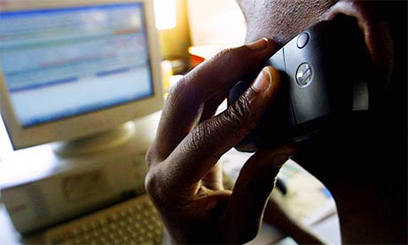Increased internet access is driving the growth of spend on TV and Radio in Kenya, according to a report released by PwC. Kenya recorded US$1.7B (Sh144.5 B) in entertainment and media revenues in 2013. This is predicated to rise to Sh263B in 2018, with the internet contributing more than Sh85B in five years.
The Outlook report by PwC looks at historical and forecast data of Kenya, South Africa and Nigeria across 12 sectors that include internet, television, filmed entertainment, radio, recorded music, publishing, out-of-home advertising, video games, and sports.
South Africa’s entertainment and media revenues will hit Sh1.9 trillion in 2018 while Nigeria’s revenues for 2013 stood at $4B (Sh340B). The report singles out internet access as the key driver of growth in these three markets.
“Growth in the South African entertainment and media industry is largely being driven by the Internet and by consumers’ love of new technology, in particular mobile technology, such as smartphones and tablets, as well as applications powered by data analytics and cloud services. Technology is increasingly being driven by consumers’ needs and expectations,” says Vicki Myburgh, Entertainment & Media Industries Leader for PwC South Africa.
Nigeria is expected to register the fastest growth rates in the world due largely to the growth of connected mobile devices which will hit 50.4 million users by 2018.
The slowest growing segment in the Entertainment and Media (E&M) industry will be the music industry, according to the survey.
Television is the second-largest segment, with combined revenues from TV subscriptions and advertising. The study shows that advertising accounted for 38 percent of revenue in the E&M industry in 2013, although this share is expected to fall to 33 percent in 2018, largely due to internet access increasing its market share significantly over the same period.
In comparison, the report also analyzed the impact of the internet on the E&M industry in African countries, drawing direct correlation between connectivity and growth of the industry.
“Although South Africa scores highest (83%) across current connectivity and quality of connectivity, there is still room for improvement as mobile broadband services are still expensive,” notes the report.
Kenya comes in second (75%) in terms of access and ranks well in terms of pricing with the continued rise in its international bandwidth usages.
“Although broadband penetration may be high – as in the case of Nigeria- this does not necessarily mean that a country scores highly. At 0.6% of the average GDP per capita in Nigeria, the cost of mobile broadband services is too high.”
Other markets that are on the radar screen in the coming five years include Ghana, Tanzania and Angola.



